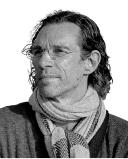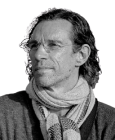Environment
A Planet Powered by Emotion
Mind is an integral part of nature.
Posted January 12, 2023 Reviewed by Hara Estroff Marano
Key points
- Emotions drive humanity more than ever. However, learning to regulate them is still not on our daily agenda.
- The thinking mind created a split and reified the conceptual divide between matter and mental as the assumed reality.
- The inner space of emotion regulation is easily missed; consciousness always tends to be swallowed up by the emotional contents of its own mind.
- The deep continuity between living and knowing was never lost.
As I spin the vintage globe in front of me, I wonder how all human activity on this planet is driven by emotion. Looking at some annual reviews of the world news, the past year again shows a very rich tapestry of the wide variety of human emotional expressions.
It begins with a war in the heart of Europe that causes an unseen flood of refugees: mothers and their children flee; fathers have to fight. The end of the emotional misery is far from imminent: fear, anger and grief follow in rapid succession. In the Middle East, an unnatural inequality over the right to free expression of gender is exploding emotionally, leading to medieval executions and barbaric torture in Tehran. The emotional end is not yet in sight: a flood of anger, fear and sorrow.

The list of emotional dramas is long and deep—as it is every year. But we also could see the unforgettable joyous celebration in Buenos Aires when the champions of Argentina arrived from Qatar after one of the most expensive sports duels in the world: millions of expressions of exuberant joy, connection and pride.
Do emotions drive this planet more than ever? Or has it always been this way? But what has humanity learned about emotion regulation in the past decade? Have we made progress?
The Ancient Roots of the Deeply Embodied Process Known as Emotion
Joseph LeDoux, researcher at New York University who has dedicated his life to the study of emotions, defines them in The Deep History of Ourselves as:
“An emotion is the experience that something of value is happening to you.” (2019, p 275)
Only a true master can sum up the essence of emotion in such a powerful sentence. Every emotion is a deeply embodied experience. In that experience, you feel the value of what is happening around you and what it means to you. Emotions express the deepest human values as felt states of consciousness.
Something extraordinary happened in the history of life at the moment when a communication process between cells turned into a mental process, as Antonio Damasio calls those primordial feelings:
“The simplest variety of affect begins in the interior of a living organism. It springs up vague and diffuse, generating feelings that are not easily described or placed.”(2021, p 73)
We will probably never know exactly where and when that moment of transition from cell communication to the origin of our mental life occurred. The roots of embodying the values of life within ourselves go back several hundred million years.
The deep continuity between living and knowing arose long ago on this planet when the continents still formed one large land mass, Pangea, which eventually disintegrated due to the slow interaction of rigid plates moving slowly across the underlying mantle: plate tectonics. Around 210 million years ago, Pangea broke apart into northern Laurasia (North America, Asia, and Europe) and Gondwanaland (South America, Antarctica, Australia, and India).
Change is nature’s undercurrent. Change is the consistency of our emotions.
A Deep Continuity Is Underlying this Deep Change
Jon Lieff, a neuropsychiatrist pursuing the integration of the natural sciences, summarizes this view of the deep continuity between mind and life on his website, The Search for the Mind:
“The emerging view of mind as an integral part of nature.”
The latest integrative sciences are going beyond the old dichotomy between a physical or material world and a mental or immaterial world. William James’ famous stream of consciousness started long ago as a very simple felt and embodied expression of the values of our life.
The deep continuity between living and knowing was never lost. Only the thinking mind created a split and reified this conceptual divide between matter and mental as the assumed reality.
Emotion Regulation Starts Within
Victor Frankl, psychiatrist and survivor of the Holocaust, gave us the most valuable hint for emotion regulation:
“Between stimulus and response, there is a space. In that space lies our freedom and our power to choose our response. In our response lies our growth and our happiness.” (Pakatos & Dundon, foreword, p X)
The possibility to experience that space is fundamentally private. No one can ever experience that space for you. The latest neuroimaging technology cannot give us an insight into that mental space, because it only offers us an outside perspective. Classical science misses it.
That natural space of emotion regulation is something that is easily overlooked, because everyday consciousness always tends to be absorbed by the emotional contents of the mind. Giving that internal space the possibility to grow and expand is the foundation for the art of emotion regulation. The direct experience of emotional value is fundamentally private. Taking the time to consciously feel and explore the real values of your life and what really matters to you triggers the emerging of a transformational power that can change the way you think, feel, do and become.
It was this private mental space that Victor Frankl discovered, explored, and experienced to survive the Holocaust by finding a new perspective for meaning—during probably one of the deepest possible emotional challenges a human being could ever face on this planet.
Why? Because in that natural space lie the unbroken qualities of our deepest humanness. Those qualities are not new conceptual constructions but something that emerges only from being experienced directly.
This intrinsic space offers a new perspective for the creation of meaning: how we react to the emotional values of our life. Victor Frankl survived thanks to this space—amid humanity’s cruellest manifestations.
Observation is the heart of every science. However, this type of internal observation needs mental training. We have to learn to enter the stream of our consciousness without being absorbed in its contents and observe what is happening. A new possibility for psychological observation manifests itself from the perspective of mind as an integral part of nature: the natural regulation of emotions from within.
References
Damasio, A. (2021). Feeling & Knowing. Making Minds Conscious. New York, Pantheon Books.
LeDoux, J. (2019). The Deep History of Ourselves. The Four-Billion-Year Story of How We Got Conscious Brains. New York, Viking.
Lieff, J. (2020). The Secret Language of Cells. Dallas, BenBella Books.
Pakatos, A & Dundon, E. (2017). Prisoners of Our Thoughts. Oakland, Berrett-Koehler Publishers.




